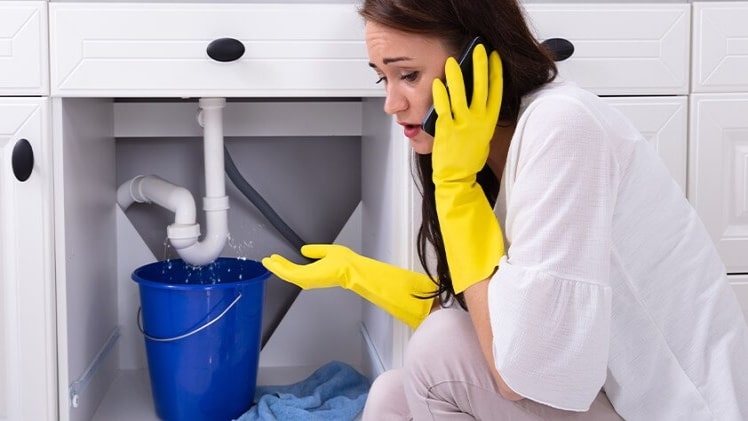Broken or unidentified leaks from an appliance is a great reason why it would be time to upgrade your appliance. Whether you’re a homeowner or a professional, addressing leaks in your home is an important part of home maintenance. Not only can they lead to exorbitant water bills, but they can also ruin your property. The best way to prevent further damage is to call a licensed plumber immediately. While some leaks are obvious, others can be hard to spot. By understanding the most common causes of leaks, you can avoid a costly disaster.
A minor plumbing leak may not seem like much, but it can ruin your home. Leaky pipes can cause mold growth, which can be harmful to your health. A professional plumber in Adelaide can help you determine whether your bathroom leak is serious and call a mold remediation company if necessary.
A leaking sewer system can cause problems throughout your home. Because drain pipes connect all the plumbing fixtures in your home, a clogged sewer pipe can affect the entire plumbing system. This means that even if your kitchen sink drains well, your shower will not. This problem can also cause problems in the vent pipes that regulate air pressure. Bird nests and heavy snowfall can clog these vent pipes.
If you notice areas of your yard that are greener than others, this could mean that your sewer line is leaking. This is especially true between the street and your house, where the sewer line follows a common path. Sunken areas in your yard may also be indicative of a leaking sewer line. This could be caused by degrading materials or invasive tree roots. Fortunately, there are some simple fixes that can prevent this problem from happening in the first place.
leak. This may be difficult, especially if the leak is hidden, but if you can pinpoint the source, you can fix it without causing further damage. If you can’t pinpoint the source of a leak, you can hire a plumber. A plumber will be able to diagnose the leak’s source, fix it, and prevent it from happening again.
Leaking pipes usually come with a dripping sound and sometimes water damage. If you find puddles or wet areas in your kitchen, you can usually find the source of the leak. Look for discoloration, peeling paint, or drywall. The source of the leak may be hidden behind a wall, but you can still find it if you know how to inspect it.
First, check your water meter. If the number on it changes, there’s a leak somewhere. Another way to find the source of a leak is to turn off the main water supply pipe in the utility room or basement. Make sure the shut-off valve is in the correct position.
Water leaking from the wall can be caused by two reasons: outside water or a problem in your home’s plumbing system. In either case, the best way to find a leak is to turn off all water in your home. Then, use your water meter to monitor how much water you have been using. After a few hours, check the meter again to see if the number changes. If it does, then your plumbing system is the culprit.
There are several common ways to fix a leaking pipe under the sink. You can either call a plumber to fix it for you, or you can try to fix it yourself. Make sure you reconnect all the parts before you begin. If you can find the source of the leak, then you can try to tighten the P-trap, which is the curved pipe underneath the sink drain. The P-trap is connected to the sink pipe through a slip nut. You can tighten this nut using hand tools or a pipe wrench.
The best way to fix a leaking pipe under the sink is to contact a professional plumber who specializes in sinks and faucets. They know how to repair leaky pipes and will have the proper tools to do the job correctly. Trying to repair a leak on your own can cause major damage. It’s best to call a plumber if you don’t have experience in plumbing and you’re unsure of what you’re doing.
Leaking pipes are one of the most common kitchen plumbing problems. Most of the time, the leak is coming from the sink’s drain assembly and the water supply. To identify where the leak is coming from, turn on the faucet and look for drips coming from the plumbing components. Sometimes, the leak may also be a result of corrosion or an improper connection.

